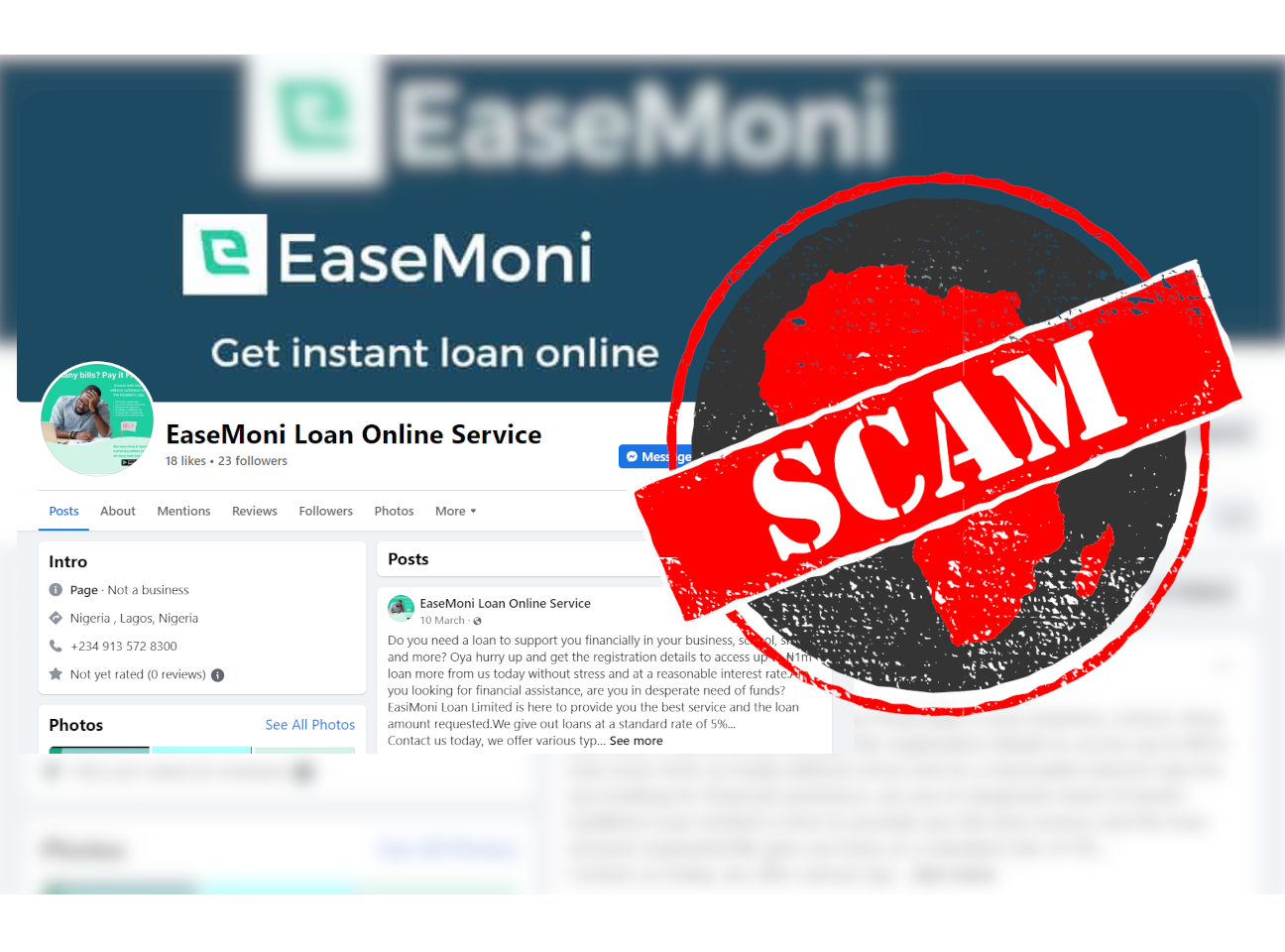IN SHORT: Several pages are pretending to belong to EaseMoni on Facebook. Users are advised not to share their personal information with these pages.
The Facebook page EaseMoni Loan Online Service claims to be offering loans of up to N1 million to Nigerians.

One post reads, in part: “Oya hurry uup and get the registration details to access up to ₦1m loan more from us today without stress and at a reasonable interest rate.Are you looking for financial assistance, are you in desperate need of funds? EasiMoni Loan Limited is here to provide you the best service and the loan amount requested.We give out loans at a standard rate of 5% ..."
The post includes two phone numbers and urges those interested to call or send a WhatsApp message.
EaseMoni is a personal cash loan app catering to the Nigerian public. It operates with a microfinance banking licence from the Central Bank of Nigeria.
We found similar posts here, here, here, here, here, here, here and here.
But is the page legit? We checked.
A usual case of impersonation
The company’s official Facebook page is known as EaseMoni and not EaseMoni Loan Online Service.
The official page was created in August 2021 and has over 8,000 followers, while the page in question was only created in March 2023 and had just 23 followers at time of writing.
The contact number found on EaseMoni’s website is different from the one on the suspicious Facebook page.
All these signs point to EaseMoni Loan Online Service being an imposter account that should not be trusted.
Africa Check found several other pages using EaseMoni’s name and logo. Users should be wary of these accounts too, as they are likely also run by fraudsters.
EaseMoni on fraud
The loan-offering platform has warned its existing and potential customers to be wary of scammers whose goal is to obtain their personal information.
“It’s important to remember that fraudsters are clever at gaining your trust and gathering your personal information. For the sake of safety, please do not click the link in the email or SMS of unknown origin, but dial the number in the email or SMS,” it wrote on its website.
Africa Check has investigated similar false loan schemes here.
To help protect yourself against online scams, read our guide here.
Republish our content for free
For publishers: what to do if your post is rated false
A fact-checker has rated your Facebook or Instagram post as “false”, “altered”, “partly false” or “missing context”. This could have serious consequences. What do you do?
Click on our guide for the steps you should follow.
Publishers guideAfrica Check teams up with Facebook
Africa Check is a partner in Meta's third-party fact-checking programme to help stop the spread of false information on social media.
The content we rate as “false” will be downgraded on Facebook and Instagram. This means fewer people will see it.
You can also help identify false information on Facebook. This guide explains how.




Add new comment